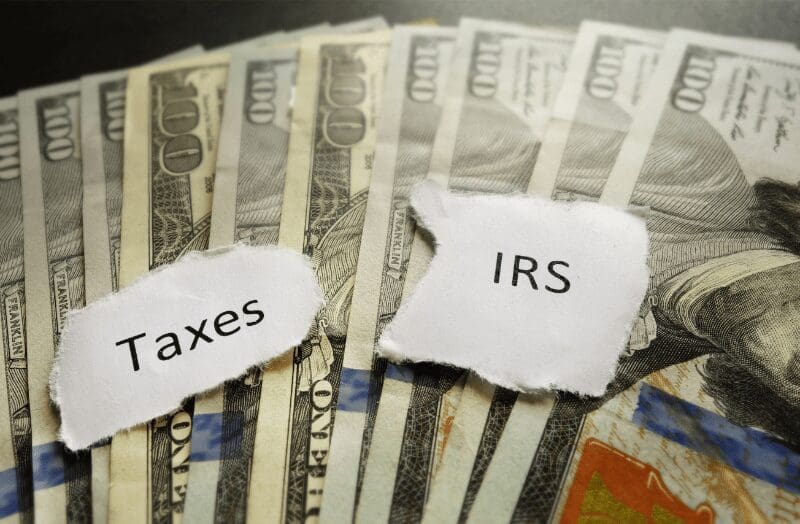Penalty Abatement in Bethesda
& Finding a Penalty Abatement Lawyer
When it comes to taxes, most people are looking for ways to save money. One way to do this is through penalty abatement. Penalty abatement is when the Internal Revenue Service (IRS) agrees to waive or reduce penalties assessed on a taxpayer. There are a few different ways a taxpayer can qualify for penalty abatement, such as showing that they made a good faith effort to comply with the tax laws or that the penalties would cause financial hardship.
If you are in Bethesda and think you may be eligible for penalty abatement, it’s important to reach out to a local tax attorney who can help you navigate the process. While there’s no guarantee you will be able to get the penalties reduced or waived, it’s worth exploring if you’re looking for ways to save on your taxes.
How Do I Apply for Penalty Abatement, and What Documents Do I Need to Provide to the IRS?
When it comes to tax penalties, there are a few different options available for abatement. The first option is to file an amendment to your return if you believe that you originally filed incorrectly and owe less in taxes as a result. You will need to include a detailed explanation of the changes you request and any supporting documentation. If you cannot pay the total amount of taxes owed, you may be able to request a payment plan from the IRS. This typically involves setting up automatic monthly payments until the debt is paid off.
In some cases, the IRS may also agree to waive certain penalties or interest charges. If you believe you have certain extenuating circumstances, such as a natural disaster or serious illness, you can request penalty abatement on these grounds. You will need to submit documentation such as insurance records or hospital bills to support your claim.
What Are the Consequences of Not Paying My Taxes on Time or Not Applying for Penalty Abatement When I Am Eligible to Do So?
If you don’t pay your Bethesda taxes on time or apply for penalty abatement when you’re eligible, you could face some pretty serious consequences. The most immediate one is that you’ll be charged interest on the amount you owe. That interest accumulates quickly, and before you know it, you could be owing much more than you originally did. In addition, the IRS could also file a notice of federal tax lien, which publicly declares that you owe money to the government. This could affect your ability to get loans or buy property in the future. Finally, the IRS could garnish your wages or take other collection actions if you still don’t pay what you owe. It’s definitely in your best interest to stay on top of your taxes and avoid these penalties.
What Is the Process for Appealing a Decision Made by the IRS Regarding Penalty Abatement Eligibility or Application Status?
The first step in appealing an IRS decision is to file a petition with the United States Tax Court within 90 days of the notice of deficiency being issued. This can be done by mail or in person, and it must include a statement of the taxpayer’s case, as well as a statement of facts and grounds for appeal. Once the petition has been filed, the Tax Court will set a date for a hearing, at which both sides will have an opportunity to present their arguments. If the Tax Court rules in favor of the taxpayer, the IRS will be required to abate any penalties that have been assessed. If the court rules against the taxpayer, however, they will be responsible for paying any outstanding taxes, plus interest and penalties. In either case, it is important to seek professional help when appealing an IRS decision, as the process can be complex and confusing.
Delia Law Can Help With Penalty Abatement in Bethesda
IRS penalties and interest can quickly add up, leaving taxpayers owing thousands of dollars. This can be a difficult financial burden to bear, especially if you’re already struggling to make ends meet. Fortunately, options are available for those unable to pay their full tax liability. Delia Law can help you explore your options and determine if you qualify for penalty abatement.
There are several different types of penalty abatement, and each has specific eligibility requirements. Delia Law can help you navigate the complex rules and regulations surrounding penalty abatement and ensure you take advantage of every opportunity to reduce your tax liability. We have already helped many taxpayers in Bethesda successfully reduce their penalties through the use of penalty abatement, and we can leverage the same best practices and strategies to help you as well. If you are struggling to pay your Bethesda taxes, don’t wait until it’s too late to seek help. Contact Delia Law today to learn more about how we can help you with penalty abatement.
Maryland-Specific Tax Laws

Maryland has a progressive tax system, which means the higher an individual’s income is, the higher the percentage they will pay in taxes. Maryland has special tax benefits for military retirees, lower income families, those paying for childcare, as well as for those aged 65 and older.
There are four types of taxes in Maryland:
- State income tax. The state tax rate for personal income tax begins at 2%. This is applied to anyone making under $1,000 per year in annual income. It increases up to 5.75% for anyone making over $250,000 annually. This is one of the lower state income tax rates in the United States.
- Local income tax. There is also a local income tax, which is levied by counties and cities. For convenience, these are withheld during income tax season by the state, and they vary based on the locality. For example, if you live in Allegany County, you paid a .0305 tax rate in 2021. This differs from residents of Baltimore County, who had a .0320 rate. It is important to note that this income is based on the county you live in, not where you work.
- Sales tax. With each purchase in Maryland of a good or service, a 6% sales tax is automatically applied. This does not include every purchase. Groceries, prescription drugs, and gasoline are a few examples of items not subject to sales tax. However, a business is required to collect a 9% tax on any alcoholic beverages sold.
- Property tax. You must pay property taxes in Maryland as well, and the tax rates vary by county. The average effective tax rate is 1.06%. While this might seem low, it is balanced by the high property values in the state. The median home value in Maryland is currently over $400,000 and varies based on proximity to the city of Maryland and other populated areas.











